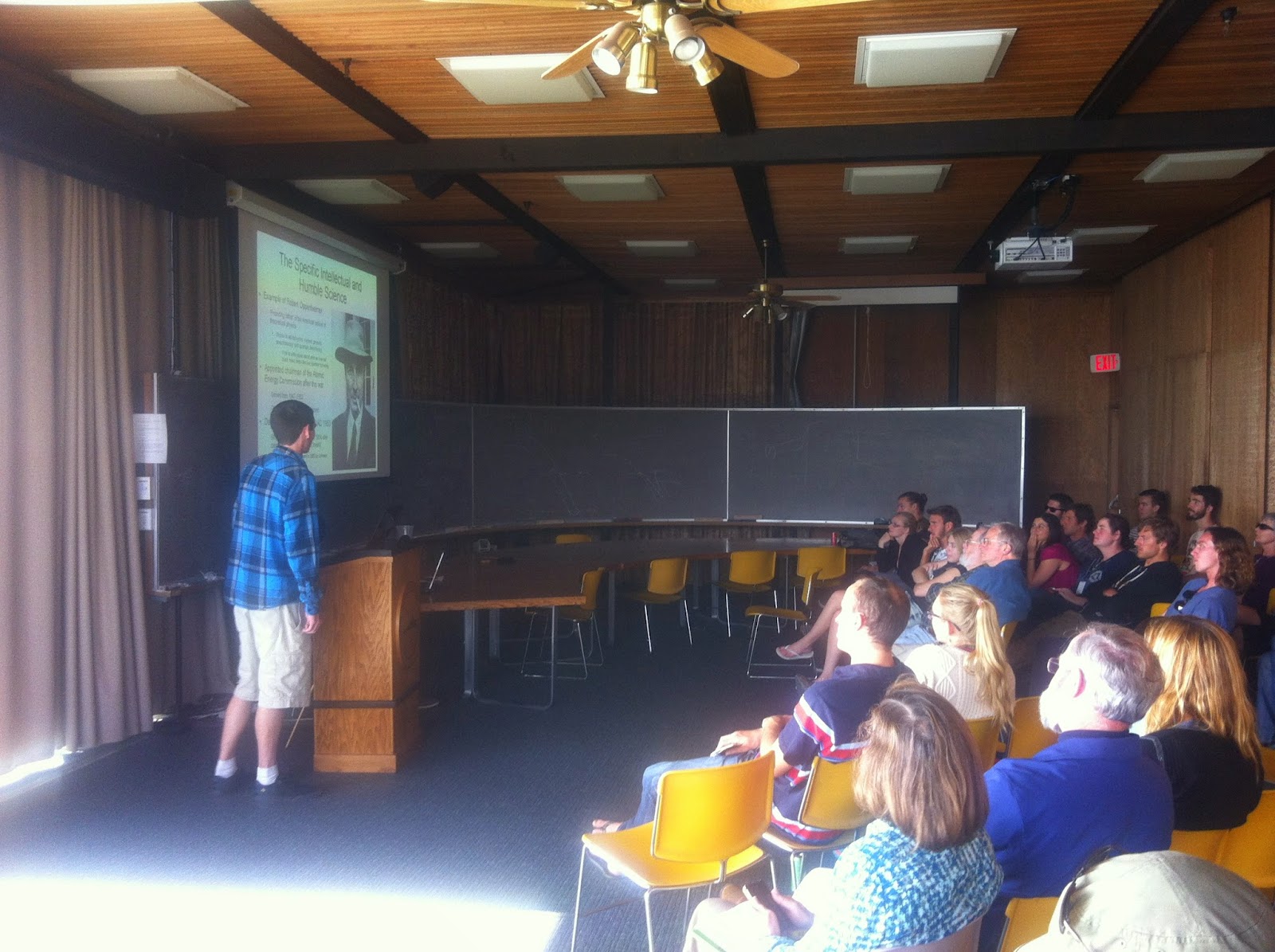 Last Tuesday, two speakers addressed the problematic of "geo-engineering" from two very different angles. By "geo-engineering," we meant a large problematic that can be summarized as "What to do if the measures against global warming proposed in the past - mainly cutting carbon emissions - cannot be applied in time? How else can we avert the predicted climatological catastrophe?" Apparently this topic has been taken up in some science circles already, and Jack Pan (SIO), our first speaker that evening, gave a witty and clear introduction to some of the issues involved. Some of the measures (like putting mirrors in front of the sun to reflect light back) seem clearly ridiculous, whereas others (putting extra clouds in the sky to shield us) reminded me of a science fiction film where such measures did not turn out to achieve the desire effects (Highlander II: The Quickening).
Last Tuesday, two speakers addressed the problematic of "geo-engineering" from two very different angles. By "geo-engineering," we meant a large problematic that can be summarized as "What to do if the measures against global warming proposed in the past - mainly cutting carbon emissions - cannot be applied in time? How else can we avert the predicted climatological catastrophe?" Apparently this topic has been taken up in some science circles already, and Jack Pan (SIO), our first speaker that evening, gave a witty and clear introduction to some of the issues involved. Some of the measures (like putting mirrors in front of the sun to reflect light back) seem clearly ridiculous, whereas others (putting extra clouds in the sky to shield us) reminded me of a science fiction film where such measures did not turn out to achieve the desire effects (Highlander II: The Quickening). After Jack's lucid introduction to the issue from a scientific perspective, Kyle Haines (UCSD Political Theory) talked about the ethical and political implications of such technologies. Specifically, Kyle pointed to the fact that if we ever obtain technology that can fundamentally "protect" our climate, we still don't know who gets to decide to use it. If we already have problems curbing carbon emissions globally, then how can we make a global decision to use climate-altering technologies? Worse, it is probably that some of us, namely the global poor, will not be involved in the decision-making process at all! Kyle then explored this argument via a historical parallel: the peaceful use, by both the US and the Soviet Union, of nuclear arms to alter the shape of the environment.
After Jack's lucid introduction to the issue from a scientific perspective, Kyle Haines (UCSD Political Theory) talked about the ethical and political implications of such technologies. Specifically, Kyle pointed to the fact that if we ever obtain technology that can fundamentally "protect" our climate, we still don't know who gets to decide to use it. If we already have problems curbing carbon emissions globally, then how can we make a global decision to use climate-altering technologies? Worse, it is probably that some of us, namely the global poor, will not be involved in the decision-making process at all! Kyle then explored this argument via a historical parallel: the peaceful use, by both the US and the Soviet Union, of nuclear arms to alter the shape of the environment.Kyle and Jack's diverging positions on the subject brought about a lively, roundtable debate with the audience. People from widely varying disciplines, such as economics, biology, climate science, and literature (me) brought their perspectives on the issue to the table. Some argued that no global geo-engineering is necessary, and that all measures will be local (for reasons of cost alone). Others talked about a small token government tax on gas that may cause people to rethink using their vehicles too much. The debate took place in a friendly, welcoming atmosphere, which allowed people to really listen to what others had to say, softening the disciplinary boundaries that so often separate our work.
In summary, this was a very successful session, and I can only hope the session the rest of this quarter proceed in a similar manner. Thank you Kyle and Jack for presenting!